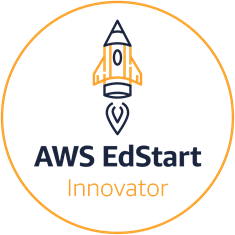-

The Mind's AI: Cymorg and Artificial Intelligence
January 24, 2020By Sriram PadmanabhanThis is the first of a series of posts in which we examine each of the Ten Hottest Topics in Leadership (as listed by DDI) and explain how Cymorg relates to them. Appropriately, we start with Artificial Intelligence: not only because it has been the buzziest of buzz words for a while now, but also because we have something new and fresh to say about it: while we’ve always had machine learning algorithms embedded in our engine, Cymorg 3.0, our AI-rich version, pops out of the toaster in two days.
DDI is rather circumspect about AI. They admit that meaningful business cases for AI have been slow to emerge. They speak of AI and ML as tools for making structured decisions, and call for HR to use these technologies to improve recruitment, hiring, performance management and personalized development. “Fully embracing AI will require entrepreneurship and business savvy,” they say: in other words, it still isn’t for the frail of heart. Perceptively, they add that HR will need to recognize where human judgment is still irreplaceable, and where AI fits. And that is precisely the nail on which we at Cymorg hang our AI hat.
It is a widely held opinion that when the dust settles after the automatons complete their conquest of the workplace, leadership judgment will emerge as the last impregnable bastion of humans. Future leaders may rely on deep and narrow algorithmic expertise as inputs, but they will continue to use unwritten, complex, mental models of how the world works, to take decisions that are likely to yield desirable business outcomes. These causal models are precisely what Cymorg aims to develop and align with the strategic interests of the organization.
In yesterday’s world, a small number of grizzled leaders took decisions, having honed their mental models over years of observation and experience. In today’s, leadership has started devolving to a larger number of empowered individuals, using technology, collaborating seamlessly with each other and with external stakeholders, and taking critical decisions much earlier in their careers than their predecessors did.
In a rather satisfactory self-referential twist, Cymorg 3.0 uses AI in training leaders to thrive in this AI-driven world. We use it in three ways. We use Conversational AI to engage the leaders in dialogue and explore how they respond to situations: what motivates their actions, what risks and opportunities they perceive, why they prioritize certain options over others. We use Machine Learning to recreate the dynamic worlds of the organization and its market, generating new situations that arise as direct and indirect consequences of the leaders’ actions. Finally, we use Natural Language analytics to examine their words closely, compare them with those of others, spotting patterns of sentiment and mapping unwritten cultural beliefs. All this rich information will help organizations hyper-personalize mentorship and development plans for each individual.
Gaurav Rastogi, who thinks deeply and writes well about technical obsolescence in the workplace, invokes the powerful mythological image of Ouroboros – a snake that eats its own tail. We have our own version of the same image: we aim to make AI its own antidote.
As DDI puts it, AI can be used to make structured decisions in place of humans. But the best use of machine intelligence, in our opinion, is to help humans make the unstructured decisions that machine intelligence can never make.
 Written By
Written BySriram Padmanabhan
President and Founder of Cymorg, a digital Leadership Development solution that combines gamification, data science & business simulations.
Know More












